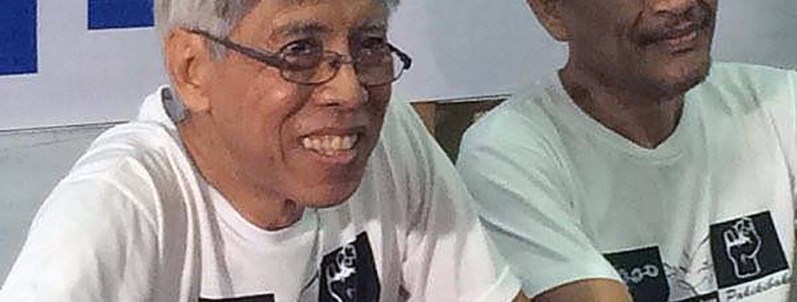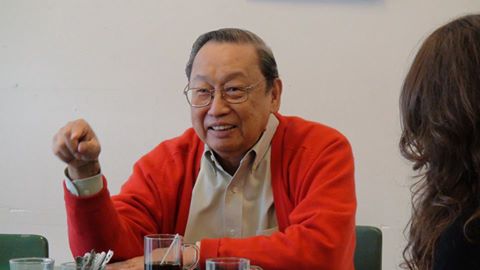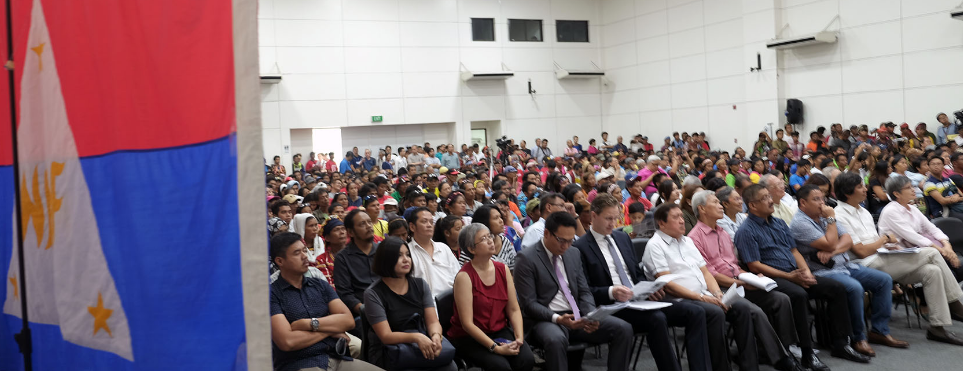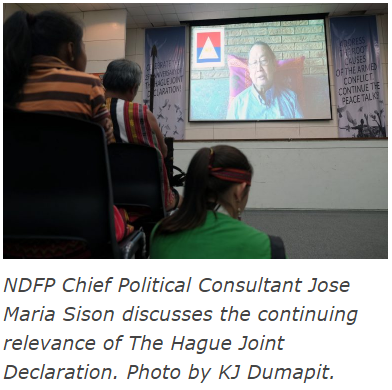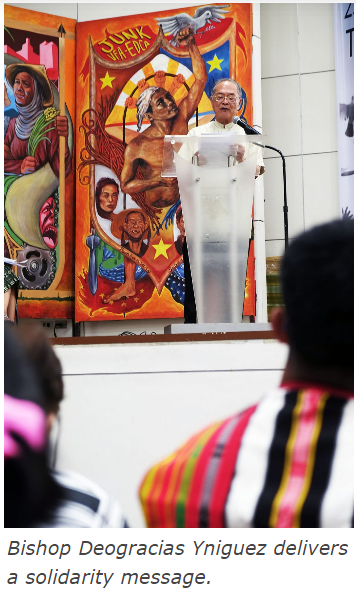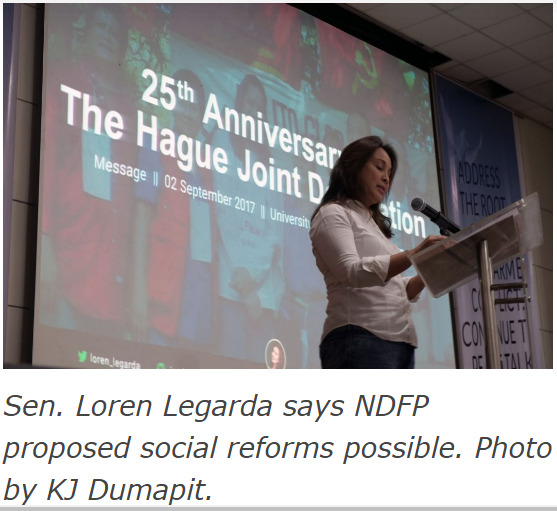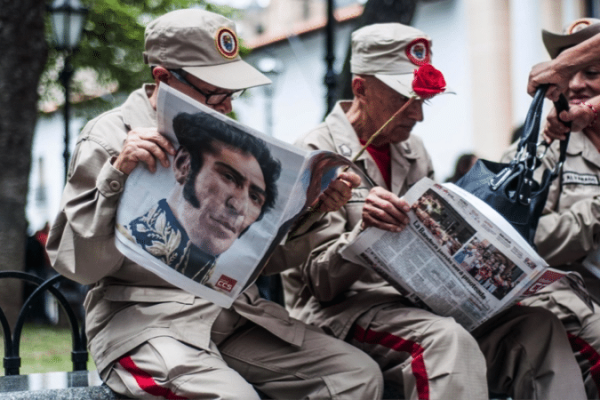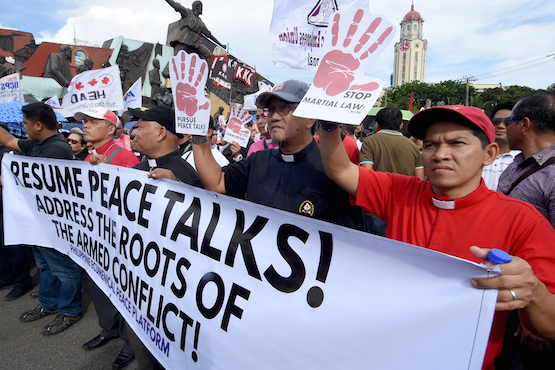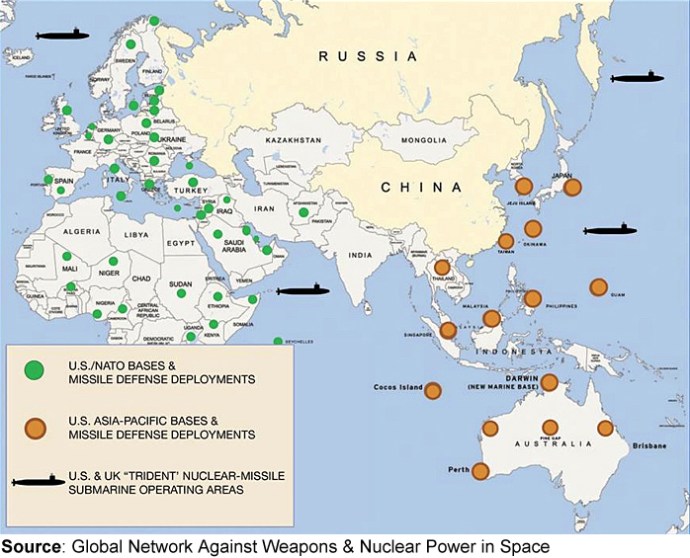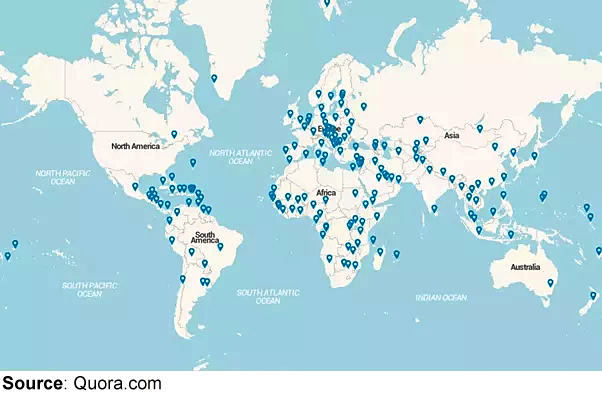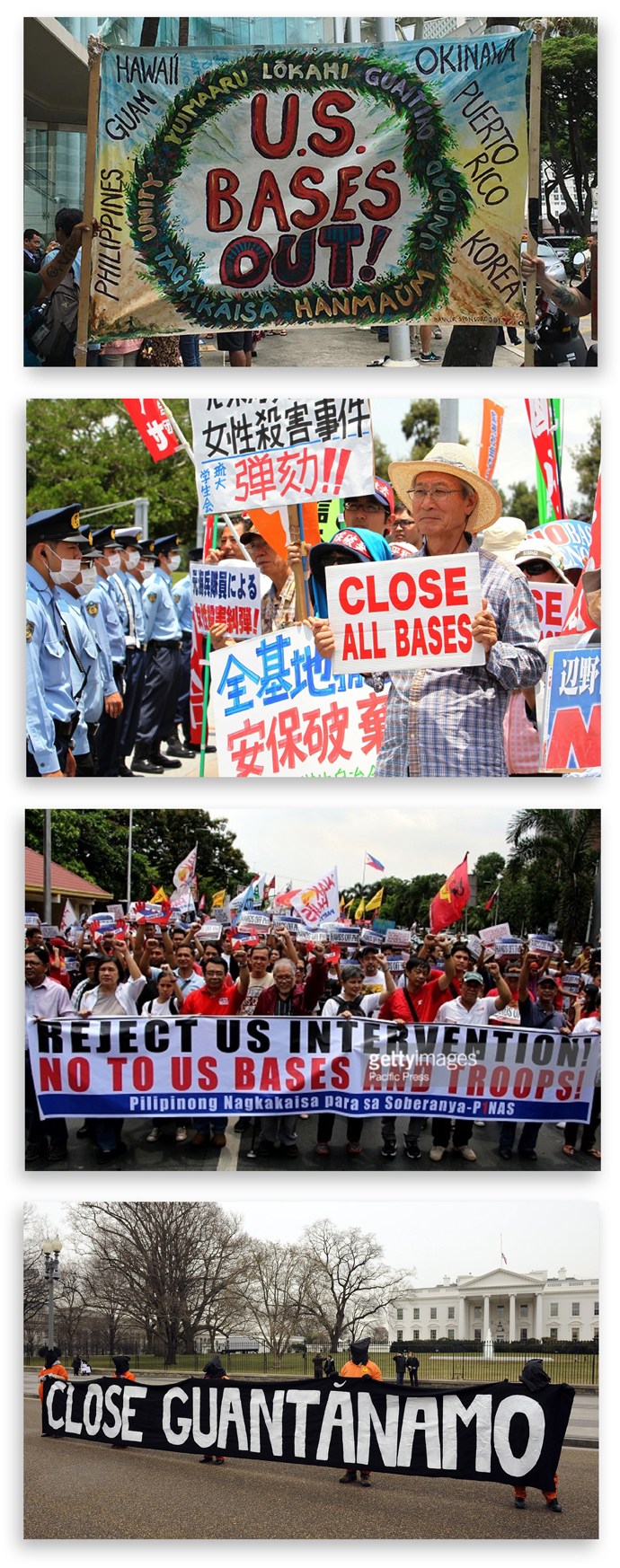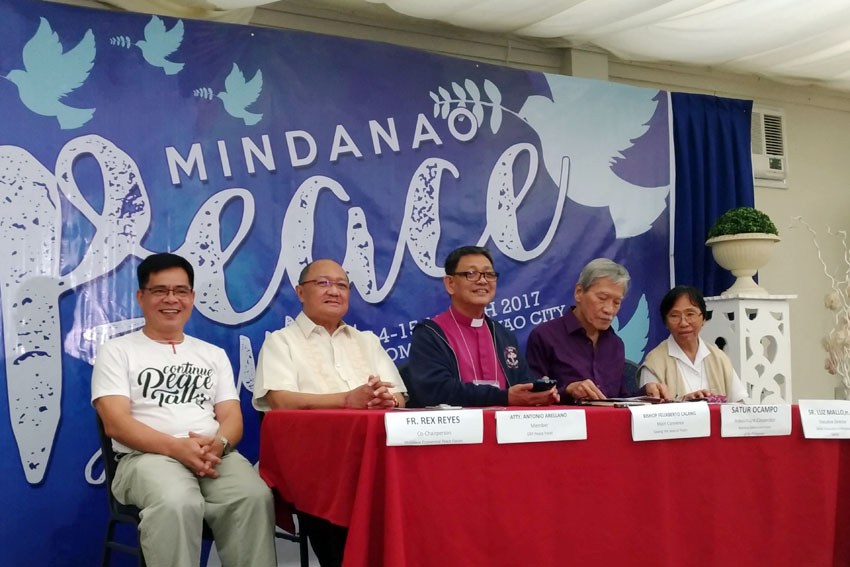By Prof Michel Chossudovsky
Global Research, April 30, 2017
Global Research 13 September 2013
 The following text by Michel Chossudovsky was presented in Seoul, South Korea in the context of the Korea Armistice Day Commemoration, 27 July 2013
The following text by Michel Chossudovsky was presented in Seoul, South Korea in the context of the Korea Armistice Day Commemoration, 27 July 2013
A Message for Peace. Towards a Peace Agreement and the Withdrawal of US Troops from Korea.
Introduction
Armistice Day, 27 July 1953 is day of Remembrance for the People of Korea.
It is a landmark date in the historical struggle for national reunification and sovereignty.
I am privileged to have this opportunity of participating in the 60th anniversary commemoration of Armistice Day on July 27, 2013.
I am much indebted to the “Anti-War, Peace Actualized, People Action” movement for this opportunity to contribute to the debate on peace and reunification.
An armistice is an agreement by the warring parties to stop fighting. It does signify the end of war.
What underlies the 1953 Armistice Agreement is that one of the warring parties, namely the US has consistently threatened towage war on the DPRK for the last 60 years.
The US has on countless occasions violated the Armistice Agreement. It has remained on a war footing. Casually ignored by the Western media and the international community, the US has actively deployed nuclear weapons targeted at North Korea for more than half a century in violation of article 13b) of the Armistice agreement.
The armistice remains in force. The US is still at war with Korea. It is not a peace treaty, a peace agreement was never signed.
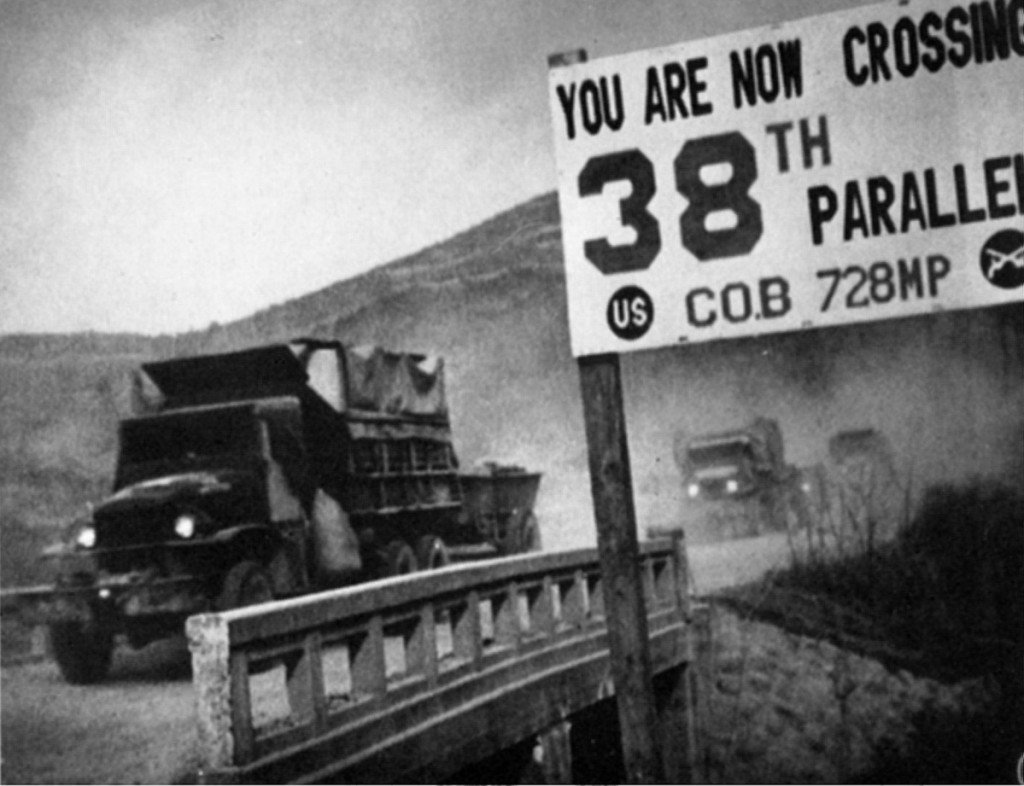
The US has used the Armistice agreement to justify the presence of 37,000 American troops on Korean soil under a bogusUnited Nations mandate, as well as establish an environment of continuous and ongoing military threats. This situation of “latent warfare” has lasted for the last 60 years. It is important to emphasize that this US garrison in South Korea is the only U.S. military presence based permanently on the Asian continent.
Our objective in this venue is to call for a far-reaching peace treaty, which will not only render the armistice agreement signed on July 27, 1953 null and void, but will also lay the foundations for the speedy withdrawal of US troops from Korea as well as lay the foundations for the reunification of the Korean nation.
Michel Chossudovsky Presentation: 60th anniversary commemoration of Armistice Day on July 27, 2013, Seoul, ROK.
Armistice Day in a Broader Historical Perspective.
This commemoration is particularly significant in view of mounting US threats directed not only against Korea, but also against China and Russia as part of Washington’s “Asia Pivot”, not to mention the illegal occupation of Afghanistan and Iraq, the US-NATO wars against Libya and Syria, the military threats directed against Iran, the longstanding struggle of the Palestinian people against Israel, the US sponsored wars and insurrections in sub-Saharan Africa.
Armistice Day July 27, 1953, is a significant landmark in the history of US led wars. Under the Truman Doctrine formulated in the late 1940s, the Korean War (1950-1953) had set the stage for a global process of militarization and US led wars. “Peace-making” in terms of a peace agreement is in direct contradiction with Washington “war-making” agenda.
 Washington has formulated a global military agenda. In the words of four star General Wesley Clark (Ret) [image right], quoting a senior Pentagon official:
Washington has formulated a global military agenda. In the words of four star General Wesley Clark (Ret) [image right], quoting a senior Pentagon official:
“We’re going to take out seven countries in 5 years, starting with Iraq, and then Syria, Lebanon, Libya, Somalia, Sudan and, finishing off, Iran” (Democracy Now March 2, 2007)
The Korean War (1950-1953) was the first major military operation undertaken by the US in the wake of World War II, launched at the very outset of what was euphemistically called “The Cold War”. In many respects it was a continuation of World War II, whereby Korean lands under Japanese colonial occupation were, from one day to the next, handed over to a new colonial power, the United States of America.
At the Potsdam Conference (July–August 1945), the US and the Soviet Union agreed to dividing Korea, along the 38th parallel.
There was no “Liberation” of Korea following the entry of US forces. Quite the opposite.
As we recall, a US military government was established in South Korea on September 8, 1945, three weeks after the surrender of Japan on August 15th 1945. Moreover, Japanese officials in South Korea assisted the US Army Military Government (USAMG) (1945-48) led by General Hodge in ensuring this transition. Japanese colonial administrators in Seoul as well as their Korean police officials worked hand in glove with the new colonial masters.
From the outset, the US military government refused to recognize the provisional government of the People’s Republic of Korea (PRK), which was committed to major social reforms including land distribution, laws protecting the rights of workers, minimum wage legislation and the reunification of North and South Korea.
The PRK was non-aligned with an anti-colonial mandate, calling for the “establishment of close relations with the United States, USSR, England, and China, and positive opposition to any foreign influences interfering with the domestic affairs of the state.”2
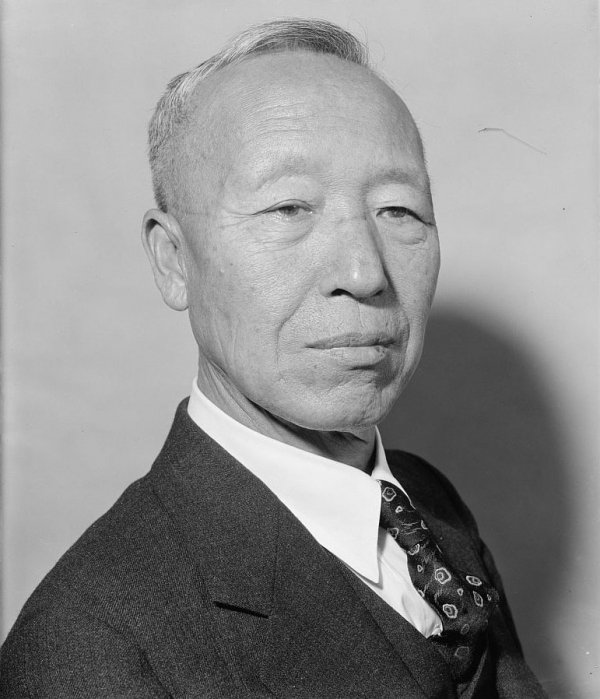 The PRK was abolished by military decree in September 1945 by the USAMG. There was no democracy, no liberation no independence.
The PRK was abolished by military decree in September 1945 by the USAMG. There was no democracy, no liberation no independence.
While Japan was treated as a defeated Empire, South Korea was identified as a colonial territory to be administered under US military rule and US occupation forces.
America’s handpicked appointee Sygman Rhee [left] was flown into Seoul in October 1945, in General Douglas MacArthur’s personal airplane.
The Korean War (1950-1953)
The crimes committed by the US against the people of Korea in the course of the Korean War but also in its aftermath are unprecedented in modern history.
Moreover, it is important to understand that these US sponsored crimes against humanity committed in the 1950s have, over the years, contributed to setting “a pattern of killings” and US human rights violations in different parts of the World.
The Korean War was also characterised by a practice of targeted assassinations of political dissidents, which was subsequently implemented by the CIA in numerous countries including Indonesia, Vietnam, Argentina, Guatemala, El Salvador, Afghanistan, Iraq.
Invariably these targeted killings were committed on the instructions of the CIA and carried out by a US sponsored proxy government or military dictatorship. More recently, targeted assassinations of civilians, “legalised” by the US Congress have become, so to speak, the “New Normal”.
According to I.F. Stone’s “Hidden History of the Korean War” first published in 1952 (at the height of the Korean War), the US deliberately sought a pretext, an act of deception, which incited the North to cross the 38th parallel ultimately leading to all out war.
“[I. F. Stone’s book] raised questions about the origin of the Korean War, made a case that the United States government manipulated the United Nations, and gave evidence that the U.S. military and South Korean oligarchy dragged out the war by sabotaging the peace talks, 3
In Stone’s account, General Douglas MacArthur “did everything possible to avoid peace”.
US wars of aggression are waged under the cloak of “self defence” and pre-emptive attacks. Echoing I. F. Stone’s historical statement concerning General MacArthur, sixty years later US president Barack Obama and his defence Secretary Chuck Hagel are also “doing everything possible to avoid peace”.
This pattern of inciting the enemy “to fire the first shot” is well established in US military doctrine. It pertains to creating a “War Pretext Incident” which provides the aggressor to pretext to intervene on the grounds of “Self- Defence”. It characterised the Japanese attack on Pearl Harbor, Hawaii in 1941, triggered by deception and provocation of which US officials had advanced knowledge. Pearl Harbor was the justification for America’s entry into World War II.
The Tonkin Gulf Incident in August 1964 was the pretext for the US to wage war on North Vietnam, following the adoption of the Tonkin Gulf Resolution by the US Congress, which granted President Lyndon B. Johnson the authority to wage war on Communist North Vietnam.
I. F. Stone’s analysis refutes “the standard telling” … that the Korean War was an unprovoked aggression by the North Koreans beginning on June 25, 1950, undertaken at the behest of the Soviet Union to extend the Soviet sphere of influence to the whole of Korea, completely surprising the South Koreans, the U.S., and the U.N.”:
But was it a surprise? Could an attack by 70,000 men using at least 70 tanks launched simultaneously at four different points have been a surprise?
Stone gathers contemporary reports from South Korean, U.S. and U.N. sources documenting what was known before June 25. The head of the U.S. CIA, Rear Admiral Roscoe H. Hillenloetter, is reported to have said on the record, “that American intelligence was aware that ‘conditions existed in Korea that could have meant an invasion this week or next.’” (p. 2) Stone writes that “America’s leading military commentator, Hanson Baldwin of the New York Times, a trusted confidant of the Pentagon, reported that they [U.S. military documents] showed ‘a marked buildup by the North Korean People’s Army along the 38th Parallel beginning in the early days of June.’” (p. 4)
How and why did U.S. President Truman so quickly decide by June 27 to commit the U.S. military to battle in South Korea? Stone makes a strong case that there were those in the U.S. government and military who saw a war in Korea and the resulting instability in East Asia as in the U.S. national interest. 4
According to the editor of France’s Nouvel Observateur Claude Bourdet:
“If Stone’s thesis corresponds to reality, we are in the presence of the greatest swindle in the whole of military history… not a question of a harmless fraud but of a terrible maneuver in which deception is being consciously utilized to block peace at a time when it is possible.”5
In the words of renowned American writers Leo Huberman and Paul Sweezy:
“….we have come to the conclusion that (South Korean president) Syngman Rhee deliberately provoked the North Koreans in the hope that they would retaliate by crossing the parallel in force. The northerners fell neatly into the trap.” 6
 On 25 June 1950, following the adoption of UN Security Council Resolution 82, General Douglas MacArthur, who headed the US military government in occupied Japan was appointed Commander in Chief of the so-called United Nations Command (UNCOM). According to Bruce Cumings, the Korean War “bore a strong resemblance to the air war against Imperial Japan in the second world war and was often directed by the same US military leaders” including generals Douglas MacArthur and Curtis Lemay.
On 25 June 1950, following the adoption of UN Security Council Resolution 82, General Douglas MacArthur, who headed the US military government in occupied Japan was appointed Commander in Chief of the so-called United Nations Command (UNCOM). According to Bruce Cumings, the Korean War “bore a strong resemblance to the air war against Imperial Japan in the second world war and was often directed by the same US military leaders” including generals Douglas MacArthur and Curtis Lemay.
US War Crimes against the People of Korea
Extensive crimes were committed by US forces in the course of the Korean War (1950-1953). While nuclear weapons were not used during the Korean War, what prevailed was the strategy of “mass killings of civilians” which had been formulated during World War II. A policy of killing innocent civilians was implemented through extensive air raids and bombings of German cities by American and British forces in the last weeks of World War II. In a bitter irony, military targets were safeguarded.
This unofficial doctrine of killing of civilians under the pretext of targeting military objectives largely characterised US military actions both in the course of the Korean war as well as in its aftermath. According to Bruce Cummings:
On 12 August 1950, the USAF dropped 625 tons of bombs on North Korea; two weeks later, the daily tonnage increased to some 800 tons.U.S. warplanes dropped more napalm and bombs on North Korea than they did during the whole Pacific campaign of World War II. 7
The territories North of the 38th parallel were subjected to extensive carpet bombing, which resulted in the destruction of 78 cities and thousands of villages;
“What was indelible about it [the Korean War of 1950-53] was the extraordinary destructiveness of the United States’ air campaigns against North Korea, from the widespread and continuous use of firebombing (mainly with napalm), to threats to use nuclear and chemical weapons, and the destruction of huge North Korean dams in the final stages of the war. ….
As a result, almost every substantial building in North Korea was destroyed. …. 8
 US Major General William F Dean “reported that most of the North Korean cities and villages he saw were either rubble or snow-covered wastelands”
US Major General William F Dean “reported that most of the North Korean cities and villages he saw were either rubble or snow-covered wastelands”
General Curtis LeMay [left] who coordinated the bombing raids against North Korea brazenly acknowledged that:
“Over a period of three years or so we killed off – what – twenty percent of the population. … We burned down every town in North Korea and South Korea, too”. 9
According to Brian Willson:
It is now believed that the population north of the imposed 38th Parallel lost nearly a third its population of 8 – 9 million people during the 37-month long “hot” war, 1950 – 1953, perhaps an unprecedented percentage of mortality suffered by one nation due to the belligerence of another.” 10
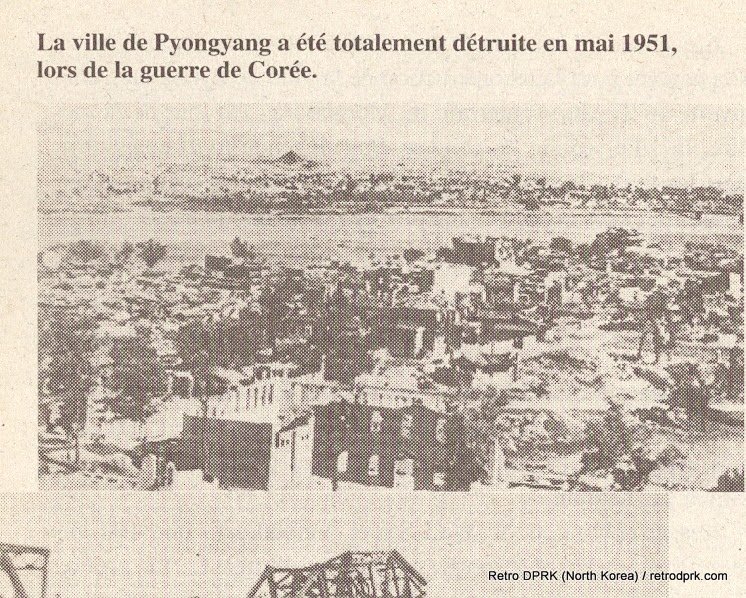
Translation: the city of Pyongyang was totally destroyed in 1951 during the Korean war
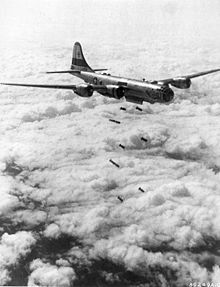 Extensive war crimes were also committed by US forces in South Korea as documented by the Korea Truth and Reconciliation Commission. According to ROK sources, almost one million civilians were killed in South Korea in the course of the Korean War:
Extensive war crimes were also committed by US forces in South Korea as documented by the Korea Truth and Reconciliation Commission. According to ROK sources, almost one million civilians were killed in South Korea in the course of the Korean War:
“In the early days of the Korean War, other American officers observed, photographed and confidentially reported on such wholesale executions by their South Korean ally, a secretive slaughter believed to have killed 100,000 or more leftists and supposed sympathizers, usually without charge or trial, in a few weeks in mid-1950.” 11
During The Second World War, the United Kingdom lost 0.94% of its population, France lost 1.35%, China lost 1.89% and the US lost 0.32%. During the Korean War, the DPRK lost more than 25% of its population. The population of North Korea was of the order of 8-9 million in 1950 prior the Korean War. US sources acknowledge 1.55 million civilian deaths in North Korea, 215,000 combat deaths. MIA/POW 120,000, 300,000 combat troops wounded. 12
South Korean military sources estimate the number of civilian deaths/wounded/missing at 2.5 million, of which some 990,900 are in South Korea. Another estimate places Korea War total deaths, civilian plus combat at 3.5 million.)
North Korea: A Threat to Global Security?
For the last 60 years, Washington has contributed to the political isolation of North Korea. It has sought to destabilize its national economy, including its industrial base and agriculture. It has relentlessly undermined the process of reunification of the Korean nation.
In South Korea, the US has maintained its stranglehold over the entire political system. It has ensured from the initial appointment of Sygman Rhee the instatement of non-democratic and repressive forms of government which have in large part served the interests of the U.S.
US military presence in South Korea has also exerted a controlling influence on economic and monetary policy.
An important question for the American people. How can a country which has lost a quarter of its population resulting from US aggression, constitute a threat to the American Homeland?
How can a country which has 37,000 US troops on its immediate border constitute a threat to America?
Given the history war crimes, how do the people of North Korea perceive the US threat to their Homeland. There is not a single family in North Korea which has not lost a loved one in the course of the Korean War.
The Korean War was the first major US led war carried out in the immediate wake of World War II.
While the US and its NATO allies have waged numerous wars and military interventions in all major regions of the World in the course of what is euphemistically called the “post War era”, resulting in millions of civilians deaths, America is upheld as the guardian of democracy and World Peace.
War Propaganda
The Lie becomes the Truth.
Realities are turned upside down.
History is rewritten. North Korea is heralded as a threat.
America is not the aggressor nation but “the victim” of aggression.
These concepts are part of war propaganda which is fed into the news chain.
Since the end of the Korean War, US led propaganda –funnelled into the ROK news chain– has relentlessly contributed to fomenting conflict and divisiveness between North and South Korea, presenting the DPRK as a threat to ROK national security.
An atmosphere of fear and intimidation prevails which impels people in South Korea to accept the “peace-making role” of the United States. In the eyes of public opinion, the presence of 37,000 US occupation forces is viewed as “necessary” to the security of the ROK.
US military presence is heralded as a means to “protecting the ROK” against North Korean aggression. Similarly, the propaganda campaign will seek to create divisions within Korean society with a view to sustaining the legitimacy of US interventionism. The purpose of this process is create divisiveness. Repeated ad nauseam, the alleged “North Korean threat” undermines –within people’s inner consciousness– the notion that Korea is one country, one nation, one history.
The “Truman Doctrine”
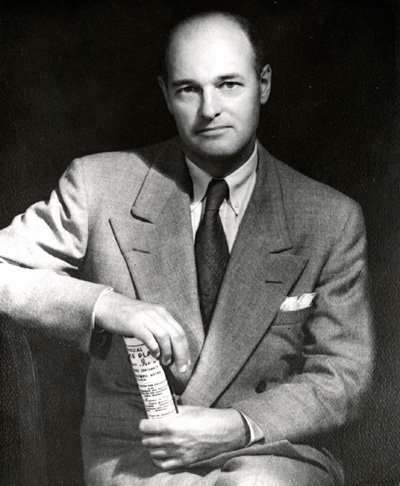 Historically, in the wake of World War II, the Truman doctrine first formulated by Foreign Policy adviser George F. Kennan in a 1948 State Department brief established the Cold War framework of US expansionism:
Historically, in the wake of World War II, the Truman doctrine first formulated by Foreign Policy adviser George F. Kennan in a 1948 State Department brief established the Cold War framework of US expansionism:
What this 1948 document conveys is continuity in US foreign policy, from “Containment” during the Cold War era to “Pre-emptive” War. It states in polite terms that the US should seek economic and strategic dominance through military means:
Furthermore, we have about 50% of the world’s wealth but only 6.3% of its population. This disparity is particularly great as between ourselves and the peoples of Asia. In this situation, we cannot fail to be the object of envy and resentment. Our real task in the coming period is to devise a pattern of relationships which will permit us to maintain this position of disparity without positive detriment to our national security. To do so, we will have to dispense with all sentimentality and day-dreaming; and our attention will have to be concentrated everywhere on our immediate national objectives. We need not deceive ourselves that we can afford today the luxury of altruism and world-benefaction. (…)
In the face of this situation we would be better off to dispense now with a number of the concepts which have underlined our thinking with regard to the Far East. We should dispense with the aspiration to “be liked” or to be regarded as the repository of a high-minded international altruism. We should stop putting ourselves in the position of being our brothers’ keeper and refrain from offering moral and ideological advice. We should cease to talk about vague and—for the Far East—unreal objectives such as human rights, the raising of the living standards, and democratization. The day is not far off when we are going to have to deal in straight power concepts. The less we are then hampered by idealistic slogans, the better. 13
The planned disintegration of the United Nations system as an independent and influential international body has been on the drawing board of US foreign policy since the inception of the United Nations in 1946. Its planned demise was an integral part of the Truman doctrine as defined in 1948. From the very inception of the UN, Washington has sought on the one hand to control it to its advantage, while also seeking to weakening and ultimately destroy the UN system. In the words of George Kennan:
“Occasionally, it [the United Nations] has served a useful purpose. But by and large it has created more problems than it has solved, and has led to a considerable dispersal of our diplomatic effort. And in our efforts to use the UN majority for major political purposes we are playing with a dangerous weapon which may some day turn against us.This is a situation which warrants most careful study and foresight on our part.
In our efforts to use the UN majority for major political purposes we are playing with a dangerous weapon which may some day turn against us. This is a situation which warrants most careful study and foresight on our part. 14
Although officially committed to the “international community”, Washington has largely played lip service to the United Nations. In recent years it has sought to undermine it as an institution. Since Gulf War I, the UN has largely acted as a rubber stamp. It has closed its eyes to US war crimes, it has implemented so-called peacekeeping operations on behalf of the Anglo-American invaders, in violation of the UN Charter.
The Truman Doctrine Applied to Korea and East Asia
 The Truman doctrine was the culmination of a post World War II US military strategy initiated with the nuclear bombing of Hiroshima and Nagasaki in August 1945 and the surrender of Japan. [Harry Truman left]
The Truman doctrine was the culmination of a post World War II US military strategy initiated with the nuclear bombing of Hiroshima and Nagasaki in August 1945 and the surrender of Japan. [Harry Truman left]
In East Asia it consisted in the post-war occupation of Japan as well the US takeover of Japan’s colonial Empire including South Korea (Korea was annexed to Japan under the 1910 Japan–Korea Annexation Treaty).
Following Imperial Japan’s defeat in World War II, a US sphere of influence throughout East and South East Asia was established in the territories of Japan’s “Great East Asia Co-Prosperity Sphere”.
The US sphere of influence included Philippines (a US possession occupied by Japan during World War II), Thailand (a Japanese protectorate during World War II), Indonesia (Occupied by Japan during World War II, becomes a US proxy State following the establishment of the Suharto military dictatorship in 1965). This US sphere of influence in Asia also extended its grip into France’s former colonial possessions in Indochina, including Vietnam, Laos and Cambodia, which were under Japanese military occupation during World War II.
America’s hegemony in Asia was largely based on establishing a sphere of influence in countries which were under the colonial jurisdiction of Japan, France and the Netherlands.
Continuity: From the Truman Doctrine to the Neo-Conservatives
The Neo-conservative agenda under the Bush administration should be viewed as the culmination of a (bipartisan) “Post War” foreign policy framework, which provides the basis for the planning of the contemporary wars and atrocities including the setting up of torture chambers, concentration camps and the extensive use of prohibited weapons directed against civilians.
From Korea, Vietnam and Afghanistan, to the CIA sponsored military coups in Latin America and Southeast Asia, the objective has been to ensure US military hegemony and global economic domination, as initially formulated under the “Truman Doctrine”. Despite significant policy differences, successive Democratic and Republican administrations, over a span of more than sixty years, from Harry Truman to Barack Obama have carried out this global military agenda.
US War Crimes and Atrocities
What we are dealing with is a criminal US foreign policy agenda. Criminalization does not pertain to one or more heads of State. It pertains to the entire State system, it’s various civilian and military institutions as well as the powerful corporate interests behind the formulation of US foreign policy, the Washington think tanks, the creditor institutions which finance the military machine.
Starting with the Korean War in 1950 and extending to the wars in the Middle East and Central Asia, this period is marked by extensive war crimes resulting in the death of more than ten million people. This figure does not include those who perished as a result of poverty, starvation and disease.
War crimes are the result of the criminalization of the US State and foreign policy apparatus. We are not solely dealing specifically with individual war criminals, but with a process involving decision makers acting at different level, with a mandate to carry out war crimes, following established guidelines and procedures.
What distinguishes the Bush and Obama administrations in relation to the historical record of US sponsored crimes and atrocities, is that the concentration camps, targeted assassinations and torture chambers are now openly considered as legitimate forms of intervention, which sustain “the global war on terrorism” and support the spread of Western democracy.
Historical Significance of the Korean War: America’s Project of Global Warfare
 The Korean War had set the stage for subsequent US military interventions. It was an initial phase of a post-World War II “military roadmap” of US led wars, special operations, coups d’etat, covert operations, US sponsored insurgencies and regime change spanning over of more than half a century. The project of global warfare has been carried out in all major regions of the World, through the US military’s geographic command structure, not to mention the CIA’s covert operations geared toward toppling sovereign governments.
The Korean War had set the stage for subsequent US military interventions. It was an initial phase of a post-World War II “military roadmap” of US led wars, special operations, coups d’etat, covert operations, US sponsored insurgencies and regime change spanning over of more than half a century. The project of global warfare has been carried out in all major regions of the World, through the US military’s geographic command structure, not to mention the CIA’s covert operations geared toward toppling sovereign governments.
This project of Worldwide conquest was initially established under the so-called “Truman Doctrine”. The latter initiated what the Pentagon later (in the wake of the Cold war under the NeoConservatives) entitled America`s “Long War”.
What we are dealing with is global warfare, a Worldwide process of conquest, militarization and corporate expansionism. The latter is the driving force. “Economic conquest” is implemented through the support of concurrent intelligence and military operations. Financial and monetary destabilization is another mechanism of economic warfare directed against sovereign countries.
In 2000, preceding the eleciton of George W. Bush to the White House, The Project for a New American Century (PNAC), A Washington Neoconservative think tank had stipulated four core missions for the US military:
- defend the American homeland;
- fight and decisively win multiple, simultaneous major theater wars;
- perform the “constabulary” duties associated with shaping the security environment in critical regions;
- transform U.S. forces to exploit the “revolution in military affairs;”
George W. Bush’s Deputy Defense Secretary Paul Wolfowitz, his Defense Secretary Donald Rumsfeld and Vice President Dick Cheney had commissioned the PNAC blueprint prior to the 2000 presidential elections.
The PNAC outlines a roadmap of conquest.
It calls for “the direct imposition of U.S. “forward bases” throughout Central Asia and the Middle East: “with a view to ensuring economic domination of the world, while strangling any potential “rival” or any viable alternative to America’s vision of a ‘free market’ economy”
Distinct from theater wars, the so-called “constabulary functions” imply a form of global military policing using various instruments of military intervention including punitive bombings and the sending in of US Special Forces, etc. Constabulary functions were contemplated in the first phase of US war plans against Iran. They were identified as ad hoc military interventions which could be applied as an “alternative” to so-called theater wars.
This document had no pretence: its objectives were strictly military. No discussion of America’s role in peace-keeping or the spread of democracy. 15 The main PNAC document is entitled Rebuilding America`s Defenses, Strategy, Forces and Resources for a New Century.(The PNAC website is: http://www.newamericancentury.org)
US Military Occupation of South Korea, The Militarization of East Asia
Washington is intent upon creating political divisions in East Asia not only between the ROK and the DPRK but between North Korea and China, with a view to ultimately isolating the DPRK. In a bitter irony, US military facilities in the ROK are being used to threaten China as part of a process of military encirclement. In turn, Washington has sought to create political divisions between countries as well fomenting wars between neighboring countries (e.g. the Iran-Iraq war in the 1980s, the confrontation between India and Pakistan).
The UN Command Mandate (UNC)
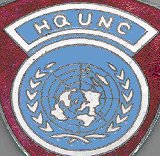 Sixty years later under a bogus UN mandate, the military occupation by US forces of South Korea prevails. It is worth noting that the UN never formally created a United Nations Command. The designation was adopted by the US without a formal decision by the UN Security Council. In 1994, the UN Secretary General Boutros Boutros Ghali clarified in a letter to the North Korean Foreign Minister that “the Security Council did not establish the unified command as a subsidiary organ under its control, but merely recommended [in 1950] the creation of such a command, specifying that it be under the authority of the United States”
Sixty years later under a bogus UN mandate, the military occupation by US forces of South Korea prevails. It is worth noting that the UN never formally created a United Nations Command. The designation was adopted by the US without a formal decision by the UN Security Council. In 1994, the UN Secretary General Boutros Boutros Ghali clarified in a letter to the North Korean Foreign Minister that “the Security Council did not establish the unified command as a subsidiary organ under its control, but merely recommended [in 1950] the creation of such a command, specifying that it be under the authority of the United States”
Republic of Korea – United States Combined Forces Command (CFC)
South Korea is still under military occupation by US forces. In the wake of the Korean War and the signing of the Armistice agreement, the national forces of the ROK were placed under the jurisdiction of the so-called UN Command. This arrangement implied that all units of the Korean military were de facto under the control of US commanders. In 1978 a binational Republic of Korea – United States Combined Forces Command (CFC), was created, headed by a US General. In substance, this was a change in labels in relation to the so-called UN Command. To this date, Korean forces remain under the command of a US general.
The CFC was originally to be dismantled when the U.S. hands back wartime operational control of South Korean troops to Seoul in 2015, but there were fears here that this could weaken South Korea’s defenses. The change of heart comes amid increasingly belligerent rhetoric from North Korea.
Park told her military brass at the briefing to launch “immediate and strong counterattacks” against any North Korean provocation. She said she considers the North’s threats “very serious,” and added, “If any provocations against our people and country ake place, the military has to respond quickly and strongly without any political consideration.” 16
United States Forces Korea (USFK)
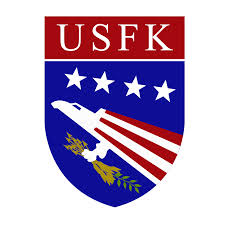 United States Forces Korea (USFK) was established in 1957. It is described as “as a subordinate-unified command of U.S. Pacific Command (USPACOM)”, which could be deployed to attack third countries in the region including Russia and China. There are officially 28,500 US troops under the jurisdiction of USFK. Recent figures of the US Department of Defense confirm that 37,000 US troops under USFK are currently (April 2013) stationed in South Korea.
United States Forces Korea (USFK) was established in 1957. It is described as “as a subordinate-unified command of U.S. Pacific Command (USPACOM)”, which could be deployed to attack third countries in the region including Russia and China. There are officially 28,500 US troops under the jurisdiction of USFK. Recent figures of the US Department of Defense confirm that 37,000 US troops under USFK are currently (April 2013) stationed in South Korea.
USFK integrated by US forces is distinct from the Combined Forces Command (CFC) created in 1978. The CFC is commanded by a four-star U.S. general, with a four-star ROK Army general as deputy commander.17 (See United States Forces Korea | Mission of the ROK/US Combined Forces Command).
The current USFK commander is General James D. Thurman (See CFC photo op below) who also also assumes the position of CFC Commander and UNC Commander. 18 (See United States Forces Korea | USFK Leadership).
General Thurman who takes his orders from the Pentagon overrides ROK president and Commander in Chief Park Geun Hye.
Regular active troops of the ROK Armed Forces (Army, Navy and Air Force) theoretically under national ROK command consist of more 600,000 active personnel and more than 2 million reservists. According to the terms of the CFC, however, these troops are de facto under the CFC command which is headed by a US General.
What this means is that in addition to the 37,000 US troops of the USFK, the US command structure has de facto control over all operational units of the Korean Armed Forces. In essence, what this means is that the ROK does not control its armed forces. ROK armed forces essentially serve the interests of a foreign power.
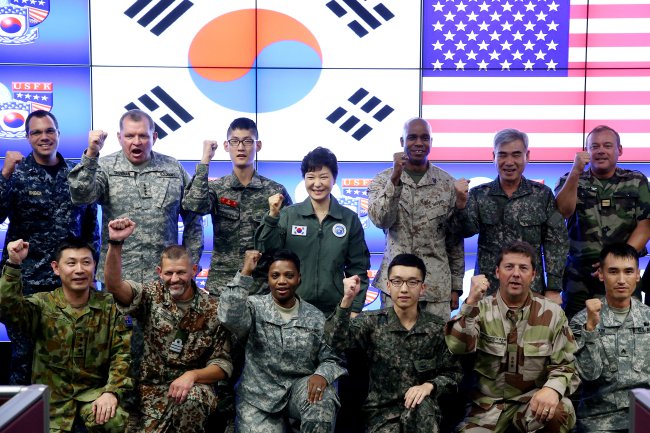
President Park Geun-hye (center), Combined Forces Command commander Gen. James D. Thurman (second from left, back row), deputy CFC commander Gen. Kwon Oh-sung (second from right, back row) and allied troops. Source Korean Herald, 28 August 2013 Annually the US-ROK conducts war games directed against North Korea. These war games –which simulate a conventional and/or nuclear attack against North Korea– are often conducted in late July coinciding with Armistice Day.
In turn, US military bases along South Korea’s Western coastline and on Jeju island are used to threaten China as part of a process of military encirclement. In view of the ROK-US agreement under the CFC, South Korean troops under US command are deployed in the context of US military operations in the region, which are actively coordinated with USFK and USPACOM.
South Korea is multibillion bonanza for America’s weapons industry. In the course of the last 4 years the ROK ranked the fourth largest arms importer in the World “with the U.S. accounting for 77 percent of its arms purchases.” It should be noted that these weapons are purchased with Korean tax payers’ wons, they are de facto under the supervision of the US military, namely the CFC Joint Command which is headed by a US General.
In recent developments, the ROK president has hinted towards the possibility of pre-emptive strikes against North Korea.
“As commander-in-chief of the armed forces, I will trust the military’s judgment on abrupt and surprise provocations by North Korea as it is the one that directly faces off against the North,” Park said, according to the London Telegraph. “Please carry out your duty of guarding the safety of the people without being distracted at all.”
Park’s defense minister also promised an “active deterrence” against Pyongyang and seemed to suggest Seoul would consider carrying out preemptive strikes on North Korean nuclear and missile sites. 19
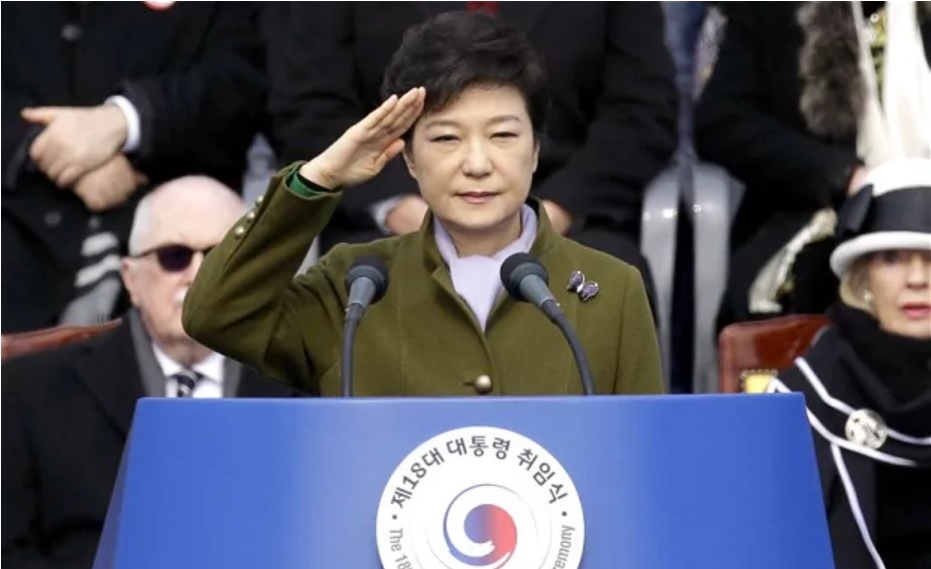
The Korea Nuclear Issue. Who Threatens Whom?
Historical Background: Hiroshima and Nagasaki: August 6 and 9, 1945
America’s early nuclear weapons doctrine under the Manhattan Project was not based on the Cold War notions of “Deterrence” and “Mutually Assured Destruction” (MAD).
US nuclear doctrine pertaining to Korea was established following the bombings of Hiroshima and Nagasaki in August 1945, which were largely directed against civilians.
The strategic objective was to trigger a “massive casualty producing event” resulting in tens of thousands of deaths. The objective was to terrorize an entire nation, as a mean of military conquest. Military targets were not the main objective: the notion of “collateral damage” was used as a justification for the mass killing of civilians, under the official pretence that Hiroshima was “a military base” and that civilians were not the target.
In the words of president Harry Truman:
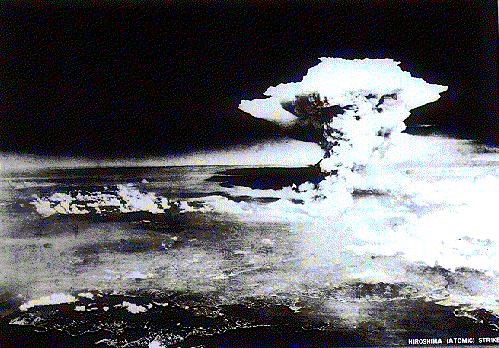 “We have discovered the most terrible bomb in the history of the world. … This weapon is to be used against Japan … [We] will use it so that military objectives and soldiers and sailors are the target and not women and children. Even if the Japs are savages, ruthless, merciless and fanatic, we as the leader of the world for the common welfare cannot drop that terrible bomb on the old capital or the new. … The target will be a purely military one… It seems to be the most terrible thing ever discovered, but it can be made the most useful.” 20 (President Harry S. Truman, Diary, July 25, 1945)
“We have discovered the most terrible bomb in the history of the world. … This weapon is to be used against Japan … [We] will use it so that military objectives and soldiers and sailors are the target and not women and children. Even if the Japs are savages, ruthless, merciless and fanatic, we as the leader of the world for the common welfare cannot drop that terrible bomb on the old capital or the new. … The target will be a purely military one… It seems to be the most terrible thing ever discovered, but it can be made the most useful.” 20 (President Harry S. Truman, Diary, July 25, 1945)
“The World will note that the first atomic bomb was dropped on Hiroshima a military base. That was because we wished in this first attack to avoid, insofar as possible, the killing of civilians..” (President Harry S. Truman in a radio speech to the Nation, August 9, 1945).
[Note: the first atomic bomb was dropped on Hiroshima on August 6, 1945; the Second on Nagasaki, on August 9, on the same day as Truman’s radio speech to the Nation]
Nobody within the upper echelons of the US government and military believed that Hiroshima was a military base, Truman was lying to himself and to the American public. To this day the use of nuclear weapons against Japan are justified as a necessary cost for bringing the war to an end and ultimately “saving lives”.
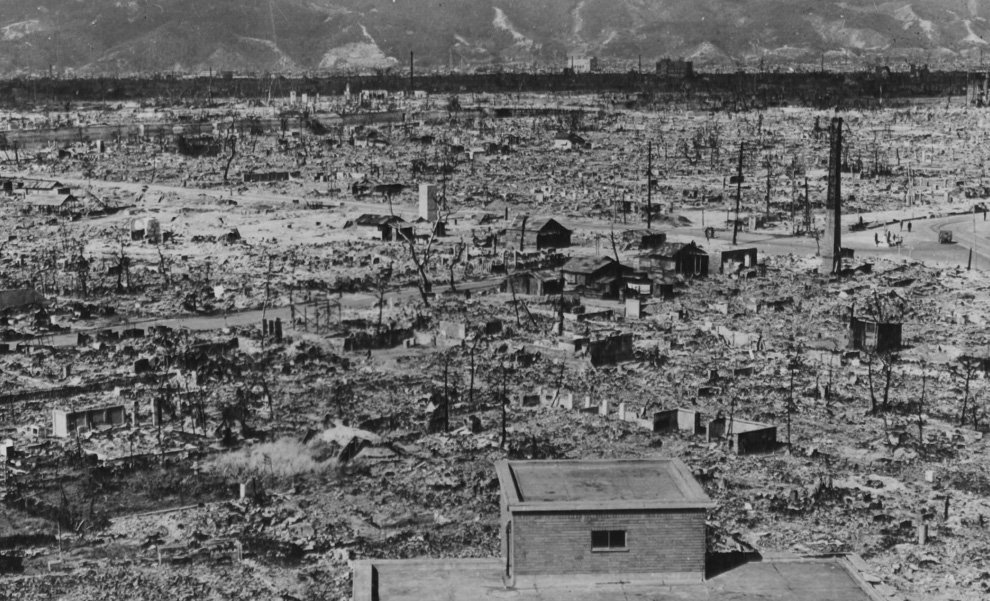
The Hiroshima Doctrine applied to Korea: US nuclear weapons stockpiled and deployed in South Korea
During the Korean War, the US had envisaged the use of nuclear weapons against North Korea shortly after the Soviet Union had tested its first atom bomb in August 29, 1949, about ten months prior to the onset of the Korean War in June 1950. Inevitably, the possession of the atom bomb by the Soviet Union acted as a deterrent against the use of nuclear weapons by the US in the course of the Korean War.
In the immediate wake of the Korean War, there was a turnaround in US nuclear weapons policy regarding North Korea. The use of nukes weapons had been envisaged on a pre-emptive basis against the DPRK, on the presumption that the Cold War nuclear powers, including China and the Soviet Union would not intervene.
Barely a few years after the end of the Korean War, the US initiated its deployment of nuclear warheads in South Korea. This deployment in Uijongbu and Anyang-Ni had been envisaged as early as 1956.
It is worth noting that the US decision to bring nuclear warheads to South Korea was in blatant violation of Paragraph 13(d) of the Armistice Agreement which prohibited the warring factions from introducing new weapons into Korea.
The actual deployment of nuclear warheads started in January 1958, four and a half years after the end of the Korean War, “with the introduction of five nuclear weapon systems: the Honest John surface-to-surface missile, the Matador cruise missile, the Atomic-Demolition Munition (ADM) nuclear landmine, and the 280-mm gun and 8-inch (203mm) howitzer.” 21 (See The nuclear information project: US Nuclear Weapons in Korea)
The Davy Crockett projectile was deployed in South Korea between July 1962 and June 1968. The warhead had selective yields up to 0.25 kilotons. The projectile weighed only 34.5 kg (76 lbs). Nuclear bombs for fighter bombers arrived in March 1958, followed by three surface-to-surface missile systems (Lacrosse, Davy Crockett, and Sergeant) between July 1960 and September 1963. The dual-mission Nike Hercules anti-air and surface-to-surface missile arrived in January 1961, and finally the 155-mm Howitzer arrived in October 1964. At the peak of this build-up, nearly 950 warheads were deployed in South Korea.
Four of the weapon types only remained deployed for a few years, while the others stayed for decades. The 8-inch Howitzer stayed until late 1991, the only of the weapon to be deployed throughout the entire 33-year period of U.S. nuclear weapons deployment to South Korea. The other weapons that stayed till the end were the air delivered bombs (several different bomb types were deployed over the years, ending with the B61) and the 155-mm Howitzer nuclear artillery.22
Officially the US deployment of nuclear weapons in South Korea lasted for 33 years. The deployment was targeted against North Korea as well China and the Soviet Union.
South Korea’s Nuclear Weapons Program
Concurrent and in coordination with the US deployment of nuclear warheads in South Korea, the ROK had initiated its own nuclear weapons program in the early 1970s. The official story is that the US exerted pressure on Seoul to abandon their nuclear weapons program and “sign the Treaty on the Non-Proliferation of Nuclear Weapons (NPT) in April 1975 before it had produced any fissile material.” 23
The fact of the matter is that the ROK’s nuclear initiative was from the outset in the early 1970s under the supervision of the US and was developed as a component part of the US deployment of nuclear weapons, with a view to threatening North Korea.
Moreover, while this program was officially ended in 1978, the US promoted scientific expertise as well as training of the ROK military in the use of nuclear weapons. And bear in mind: under the ROK-US CFC agreement, all operational units of the ROK are under joint command headed by a US General. This means that all the military facilities and bases established by the Korean military are de facto joint facilities. There are a total of 27 US military facilities in the ROK 24
The Official Removal of Nuclear Weapons from South Korea
According to military sources, the removal of nuclear weapons from South Korea was initiated in the mid 1970s:
The nuclear weapons storage site at Osan Air base was deactivated in late 1977. This reduction continued over the following years and resulted in the number of nuclear weapons in South Korea dropping from some 540 in 1976 to approximately 150 artillery shells and bombs in 1985. By the time of the Presidential Nuclear Initiative in 1991, roughly 100 warheads remained, all of which had been withdrawn by December 1991. 25
According to official statements, the US withdrew its nuclear weapons from South Korea in December 1991.
The Planning of Nuclear Attacks against North Korea from the Continental US and from Strategic US Submarines
This withdrawal from Korea did not in any way modify the threat of nuclear war directed against the DPRK. On the contrary: it was tied to changes in US military strategy with regard to the deployment of nuclear warheads. Major North Korean cities were to be targeted with nuclear warheads from US continental locations and from US strategic submarines (SSBN) rather than military facilities in South Korea:
After the withdrawal of [US] nuclear weapons from South Korea in December 1991, the 4th Fighter Wing at Seymour Johnson Air Force Base has been tasked with nuclear strike planning against North Korea. Since then, strike planning against North Korea with non-strategic nuclear weapons has been the responsibility of fighter wings based in the continental United States. One of these is the 4th Fighter Wing at Seymour Johnson Air Force Base in North Carolina. …
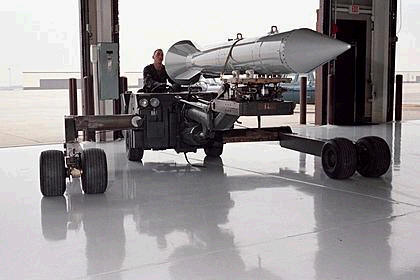 “We simulated fighting a war in Korea, using a Korean scenario. … The scenario…simulated a decision by the National Command Authority about considering using nuclear weapons….We identified aircraft, crews, and [weapon] loaders to load up tactical nuclear weapons onto our aircraft….
“We simulated fighting a war in Korea, using a Korean scenario. … The scenario…simulated a decision by the National Command Authority about considering using nuclear weapons….We identified aircraft, crews, and [weapon] loaders to load up tactical nuclear weapons onto our aircraft….
With a capability to strike targets in less than 15 minutes, the Trident D5 sea-launched ballistic missile is a “mission critical system” for U.S. Forces Korea. Ballistic Missile Submarines and Long-Range Bombers
In addition to non-strategic air delivered bombs, sea-launched ballistic missiles onboard strategic Ohio-class submarines (SSBNs) patrolling in the Pacific appear also to have a mission against North Korea. A DOD General Inspector report from 1998 listed the Trident system as a “mission critical system” identified by U.S. Pacific Command and U.S. Forces Korea as “being of particular importance to them.”
Although the primary mission of the Trident system is directed against targets in Russia and China, a D5 missile launched in a low-trajectory flight provides a unique very short notice (12-13 minutes) strike capability against time-critical targets in North Korea. No other U.S. nuclear weapon system can get a warhead on target that fast. Two-three SSBNs are on “hard alert” in the Pacific at any given time, holding Russian, Chinese and North Korean targets at risk from designated patrol areas.
Long-range strategic bombers may also be assigned a nuclear strike role against North Korea although little specific is known. An Air Force map (see below) suggests a B-2 strike role against North Korea. As the designated carrier of the B61-11 earth penetrating nuclear bomb, the B-2 is a strong candidate for potential nuclear strike missions against North Korean deeply buried underground facilities.
As the designated carrier of the B61-11 earth penetrating nuclear bomb [with an explosive capacity between one third and six times a Hiroshima bomb,see image right above] and a possible future Robust Nuclear Earth Penetrator, the B-2 stealth bomber (below)could have an important role against targets in North Korea. Recent upgrades enable planning of a new B-2 nuclear strike mission in less than 8 hours. 26
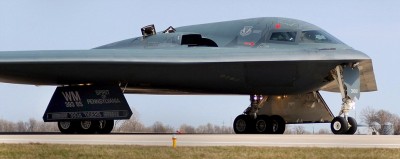 Whereas officially the US deployment of nuclear weapons in South Korea lasted for 33 years, there is evidence that a large number of nuclear warheads are still stockpiled in South Korea.
Whereas officially the US deployment of nuclear weapons in South Korea lasted for 33 years, there is evidence that a large number of nuclear warheads are still stockpiled in South Korea.
“Although the South Korean government at the time confirmed the withdrawal, U.S. affirmations were not as clear. As a result, rumors persisted for a long time — particularly in North and South Korea — that nuclear weapons remained in South Korea. Yet the withdrawal was confirmed by Pacific Command in 1998 in a declassified portion of the CINCPAC Command History for 1991. 27 (The nuclear information project: withdrawal of US nuclear weapons from South Korea,)
Recent reports have hinted to a remaining stockpile of nuclear weapons in South Korea to be used on a pre-emptive basis against North Korea. It is well understood that such an action would engulf the entire Korean peninsula in an area of intense nuclear radiation.
The Bush Administration’s 2001 Nuclear Posture Review: Pre-emptive Nuclear War.
The Bush administration in its 2001 Nuclear Posture Review established the contours of a new post 9/11 “pre-emptive” nuclear war doctrine, namely that nuclear weapons could be used as an instrument of “self-defense” against non-nuclear states
“Requirements for U.S. nuclear strike capabilities” directed against North Korea were established as part of a Global Strike mission under the helm of US Strategic Command Headquarters in Omaha Nebraska, the so-called CONPLAN 8022, which was directed against a number of “rogue states” including North Korea as well as China and Russia:
On November 18, 2005, the new Space and Global Strike command became operational at STRATCOM after passing testing in a nuclear war exercise involving North Korea.
Current U.S. Nuclear strike planning against North Korea appears to serve three roles: The first is a vaguely defined traditional deterrence role intended to influence North Korean behavior prior to hostilities.
This role was broadened somewhat by the 2001 Nuclear Posture Review to not only deter but also dissuade North Korea from pursuing weapons of mass destruction.
Why, after five decades of confronting North Korea with nuclear weapons, the Bush administration believes that additional nuclear capabilities will somehow dissuade North Korea from pursuing weapons of mass destruction [nuclear weapons program] is a mystery. 28
The Threat of Nuclear War. North Korea vs. the United States.
While the Western media in chorus focus on the North Korean nuclear threat, what prevails when reviewing Korean history is the asymmetry of nuclear capabilities.
The fact that the US has been threatening North Korea with nuclear war for over half a century is barely acknowledged by the Western media.
Where is the threat?
The asymmetry of nuclear weapons capabilities between the US and the DPRK must be emphasised,
According to ArmsControl.org (April 2013) the United States
“possesses 5,113 nuclear warheads, including tactical, strategic, and non-deployed weapons.”
According to the latest official New START declaration, out of more than 5113 nuclear weapons,
“the US deploys 1,654 strategic nuclear warheads on 792 deployed ICBMs, SLBMs, and strategic bombers… 29
Moreover, according to The Federation of American Scientists the U.S. possesses 500 tactical nuclear warheads.
On April 3, 2013 the U.S. State Department issued the latest fact sheet on its data exchange with Russia under New START, sharing the numbers of deployed nuclear warheads and New START-accountable delivery systems held by each country, 2. On May 3, 2010, the United States Department of Defense released for the first time the total number of nuclear warheads (5,113) in the U.S. stockpile. The Defense Department includes in this stockpile active warheads which are operational and deployed or ready to be deployed, and inactive warheads which are maintained “in a non-operational status, and have their tritium bottle removed.” Sources: Arms Control Association, Federation of American Scientists, International Panel on Fissile Materials, U.S. Department of Defense, and U.S. Department of State).30
In contrast the DPRK, according to the same source:
“has separated enough plutonium for roughly 4-8 nuclear warheads. North Korea unveiled a centrifuge facility in 2010, buts ability to produce highly-enriched uranium for weapons remains unclear.” 31 (ArmsControl.org)
Morever, according to expert opinion:
“there is no evidence that North Korea has the means to lob a nuclear-armed missile at the United States or anyone else. So far, it has produced several atomic bombs and tested them, but it lacks the fuel and the technology to miniaturize a nuke and place it on a missile” 32
According to Siegfried Hecker, one of America’s preeminent nuclear scientists:
“Despite its recent threats, North Korea does not yet have much of a nuclear arsenal because it lacks fissile materials and has limited nuclear testing experience,” 33
The threat of nuclear war does not emanate from the the DPRK but from the US and its allies.
The Democratic People’s Republic of Korea, the unspoken victim of US military aggression, has been incessantly portrayed as a war mongering nation, a menace to the American Homeland and a “threat to World peace”. These stylized accusations have become part of a media consensus.
Meanwhile, Washington is now implementing a $32 billion refurbishing of strategic nuclear weapons as well as a revamping of its tactical nuclear weapons, which according to a 2002 Senate decision “are harmless to the surrounding civilian population.”
These continuous threats and actions of latent aggression directed against the DPRK should also be understood as part of the broader US military agenda in East Asia, directed against China and Russia.
It is important that people across the land, in the US, Western countries, come to realize that the United States rather than North Korea or Iran is a threat to global security. [Obama at the DMZ using the UN Flag in violation of the UN Security Council]
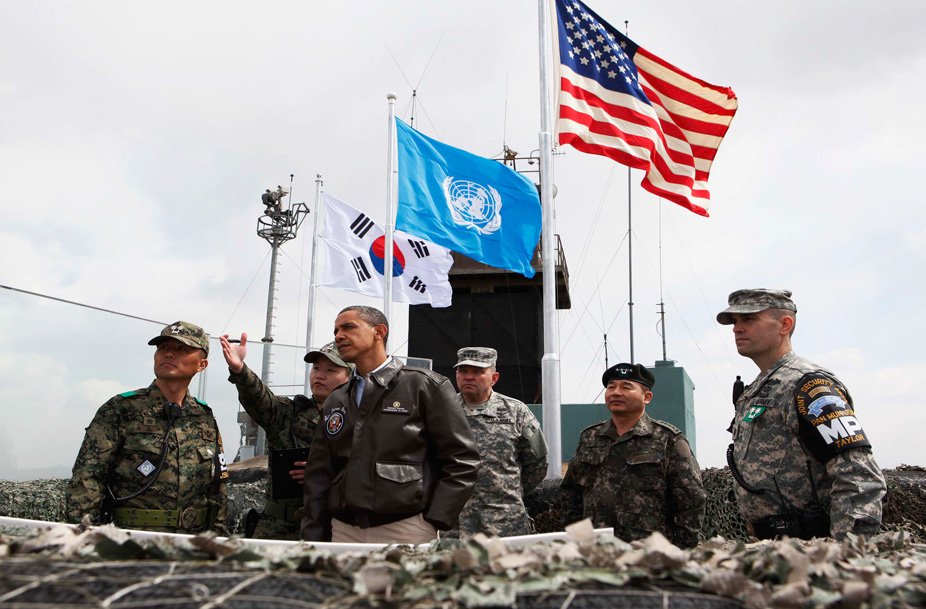
Korea’s Economic Development
The US military occupation of South Korea has largely supported and protected US economic and financial interests in Korea. From the very outset in 1945, there was no democratization of the South Korean economy. The exploitative Japanese factory system was adopted by the Korean business conglomerates, which were in part the outgrowth of the Japanese imperial system.
At the outset this system was based on extremely low wages, Korea’s manufacturing base was used to produce cheap labor exports for Western markets, In many respects, the earlier Korean manufacturing base was a form of “industrial colonialism” in derogation of the rights of Korean workers.
The rise of the South Korean business conglomerates (Chaebols) was the source of impressive economic growth performance starting in the 1970s. The Chaebols are conglomerates of many companies “clustered around one holding company”. The parent company is often controlled by single family or business clan. The latter in turn had close ties to officials in the ROK’s military governments.
South Korea’s industrial and technological revolution constituted a challenge to Western capitalism. Despite US military presence, the ROK was no longer a “developing country” with a “dependent” economy. Inserted into a competitive World market, South Korean capitalism was competing with both Japanese and Western multinationals.
The 1997 Asian Crisis: Financial Warfare Directed against South Korea
The ROK had developed into a World capitalist power. It had acquired its own technological base, a highly developed banking system; it was categorised by the World Bank as a so-called “Asian tiger”.
Yet at the same time, the entire political fabric –which included the conduct of macroeconomic policy– was controlled by Washington and Wall Street, not to mention the military presence of US occupation forces.
The Asian crisis of 1997 was an important watershed. In late 1997, the imposition of an IMF bailout contributed to plunging South Korea, virtually overnight, into a deep recession. The social impact was devastating.
Through financial manipulation of stock markets and foreign exchange markets by major financial actors, the Asian crisis contributed to weakening and undermining the Korean business establishment. The objective was to “tame the tiger”, dismantle the Korean business conglomerates, and restore US control and ownership over the Korean economy, its industrial base, its banking system.
The collapse of the won in late 1997 was triggered by “naked short selling” on the foreign exchange markets. It was tantamount to an act of economic warfare.
Several Korean business conglomerates were fractured, broken up or precipitated into bankruptcy on the orders of the IMF, which was acting on behalf of Wall Street.
Of the 30 largest chaebols, 11 collapsed between July 1997 and June 1999.
Following the IMF’s December 1997 financial bailout, a large part of the Korean national economy, its high tech sectors, its industrial base, was “stolen” by US and Western capital under various fraudulent clauses negotiated by the ROK’s creditors.
Western corporations had gone on a shopping spree, buying up financial institutions and industrial assets at rock-bottom prices. The devaluation of the won, combined with the slide of the Seoul stock market, had dramatically depressed the dollar value of Korean assets.
Acting directly on behalf of Wall Street, the IMF had demanded the dismantling of the Daewoo Group including the sell-off of the 12 so-called troubled Daewoo affiliate companies. Daewoo Motors was up for grabs. This was not a spontaneous bankruptcy, it was the result of financial manipulation, with a view to transferring valuable productive assets into the hand of foreign investors. Daewoo obliged under the IMF agreement to sell off Daewoo Motor to General Motors (GM) in 2001. Similarly, the ROK’s largest corporation Hyundai was forced to restructure its holding company following the December 1997 bailout.
In April 1999 Hyundai announced a two-thirds reduction of the number of business units and “a plan to break up the group into five independent business groups”. This initiative was part of the debt reduction plan imposed by Western creditors and carried out by the IMF. It was implemented under what was called “the spin-off program” whereby the large Korean business conglomerates were to slated to be downsized and broken up into smaller business undertakings.
In the process, many of the high tech units belonging to the large Korean holding companies were bought out by Western capital.
South Korea’s banking landscape was also taken over by “US investors”. Korea First Bank (KFB), with a network of branches all over the country, was purchased at a negative price by the California based Newbridge Group in a fraudulent transaction. 34
A similar shady deal enabled the Carlyle Group –whose board of directors included former U.S. President George Herbert Walker Bush (Senior), his Secretary of State James A. Baker III, and former Defense Secretary Frank C. Carlucci — to take control of KorAm Bank in September 2000. KorAm was taken over in a Consortium led by The Carlyle Group in collaboration with JPMorgan Chase. KorAm Bank had been established in the early 1980s as a joint venture between Bank America and a group of Korean conglomerates. .
Three years later, CitiBank purchased a 36.7 percent stake in KorAm from the Carlyle Group and then bought up all the remaining shares, in what was described as “Citibank’s biggest acquisition outside the Western Hemisphere”. 35
Following the 1997 Asian Crisis which triggered a multibillion dollar debt crisis, a new system of government had been established in South Korea, geared towards the fracture of Korea’s business conglomerates and the weakening of Korean national capitalism. In other words, the signing of the IMF bailout Agreement in December 1997 marks a significant transformation in the structure of the Korean State, whose regulatory financial agencies were used to serve the interests of Korea’s external creditors.
Concluding Remarks: Towards Peace.
The US is still at war with Korea.
This US sponsored state of war is directed against both North and South Korea. It is characterised by persistent military threats (including the use of nuclear weapons) against the DPRK. It also threatens the ROK which has been under US military occupation since September 1945.
Currently there are 37,000 US troops in South Korea. Given the geography of the Korean peninsula, the use of nuclear weapons against North Korea would inevitably also engulf South Korea. This fact is known and understood by US military planners.
What has to be emphasized prior to forthcoming negotiations pertaining a “Peace Treaty” is that the US and the ROK are not “Allies”.
The “real alliance” is that which unifies and reunites North and South Korea against foreign intrusion and aggression.
What this signifies is that the US is in a state of war against the entire Korean Nation.
The formulation of the Peace Treaty, therefore, requires the holding of bilateral talks between the ROK and the DPRK with a view to formulating a “joint position” regarding the terms to be included in a “Peace Treaty”.
The terms of this Peace Treaty should under no circumstances be dictated by the US Aggressor, which is committed to maintaining its military presence on the Korean peninsula.
It is worth noting in this regard, US foreign policy and military planners have already established their own scenario of “reunification” predicated on maintaining US occupation troops in Korea. Similarly, what is envisaged by Washington is a framework which will enable “foreign investors” to penetrate and pillage the North Korean economy.
Washington’s objective is to impose the terms of Korea’s reunification. The NeoCons “Project for a New American Century” (PNAC) published in 2000 had intimated that in “post unification scenario”, the number of US troops (currently at 37,000) should be increased and that US military presence could be extended to North Korea. In a reunified Korea, the military mandate of the US garrison would be to implement so-called “stability operations in North Korea”:
While Korea unification might call for the reduction in American presence on the peninsula and a transformation of U.S force posture in Korea, the changes would really reflect a change in their mission – and changing technological realities – not the termination of their mission. Moreover, in any realistic post-unification scenario, U.S. forces are likely to have some role in stability operations in North Korea. It is premature to speculate on the precise size and composition of a post-unification U.S. presence in Korea, but it is not too early to recognize that the presence of American forces in Korea serves a larger and longer-range strategic purpose. For the present, any reduction in capabilities of the current U.S. garrison on the peninsula would be unwise. If anything, there is a need to bolster them, especially with respect to their ability to defend against missile attacks and to limit the effects of North Korea’s massive artillery capability. In time, or with unification, the structure of these units will change and their manpower levels fluctuate, but U.S. presence in this corner of Asia should continue. 36 (PNAC, Rebuilding America`s Defenses, Strategy, Forces and Resources for a New Century, p. 18, emphasis added)
Washington’s intentions are crystal clear.
It is important, therefore, that these talks be conducted by the ROK and DPRK without the participation or interference of outside parties. These discussions must address the withdrawal of all US occupation forces as well as the removal of economic sanctions directed against North Korea.
The exclusion of US military presence and the withdrawal of the 37,000 occupation forces should be a sine qua non requirement of a Peace Treaty.
Pursuant to a Peace Treaty, the ROK-US CFC agreement which places ROK forces under US command should be rescinded. All ROK troops would thereafter be brought under national ROK command.
This a fundamental shift: the present CFC agreement in essence allows the US Command to order South Korean troops to fight in a US sponsored war against North Korea, superseding and overriding the ROK President and Commander in Chief of the ROK Armed Forces.
Bilateral consultations should also be undertaken with a view to further developing economic, technological, cultural and educational cooperation between the ROK and the DPRK.
Economic sovereignty is a central issue. The shady transactions launched in the wake of the IMF bailout in 1997 must be addressed. These transactions were conducive to the illegal and fraudulent acquisition and ownership of a large part of South Korea’s high tech industry and banking by Western corporate capital. Similarly the impacts of the insertion of the ROK into the Trans-Pacific Partnership (TPP) must also be examined.
The Peace agreement would also be accompanied by the opening of the border between North and South.
Pursuant to the June 15th North–South Joint Declaration in August 2000, a joint ROK DPRK working commission should be established to set an agenda and a timeline for reunification.
Michel Chossudovsky is an award-winning author, Professor of Economics (emeritus) at the University of Ottawa, Founder and Director of the Centre for Research on Globalization (CRG), Montreal and Editor of the globalresearch.ca website. He is the author of The Globalization of Poverty and The New World Order (2003) and America’s “War on Terrorism”(2005). His most recent book is entitled Towards a World War III Scenario: The Dangers of Nuclear War (2011). He is also a contributor to the Encyclopaedia Britannica. His writings have been published in more than twenty languages.
Michel Chossudovsky is a member of the Kuala Lumpur War Crimes Commission which initiated the indictment against George W. Bush et al “for crimes of torture and war crimes”. (Judgement of the Kuala Lumpur War Crimes Tribunal, 11 May 2012).
Michel Chossudovsky can be reached at crgeditor@yahoo.com
Notes
1 Interview with General Wesley Clark, Democracy Now March 2, 2007.
2 Martin Hart-Landsberg, Korea: Division, Reunification, & U.S. Foreign Policy. Monthly Review Press. New York, 1998 pp. 65–6). The PRK was abolished by military decree in September 1945 by the USAMG.
3 Jay Hauben, Book Review of I.F. Stone’s “Hidden History of the Korean War”, OmnyNews, 2007, http://www.globalresearch.ca/the-hidden-history-of-the-korean-war/5342685
4 Ibid.
5 Quoted in Stephen Lendman, America’s War on North Korea, Global Research, http://www.globalresearch.ca/americas-war-on-north-korea/5329374, April 1, 2013
6 Ibid
7 Bruce Cumings, Korea: Forgotten Nuclear Threats, 2005
8 Ibid
9 Quoted in Brian Willson, Korea and the Axis of Evil, Global Research, October 2006.
10 Ibid.
11 Associated Press Report, http://www.globalresearch.ca/us-coverup-extrajudicial-killings-in-south-korea/9518, July 6, 2008
12 Wikipedia
13 George F. Kennan, State Department Brief, Washington DC, 1948
14 Ibid.
15 The main PNAC document is entitled Rebuilding America`s Defenses, Strategy, Forces and Resources for a New Century, The PNAC website is: http://www.newamericancentury.org
16 Chosun Ibo, April 13, 2013
17 See United States Forces Korea | Mission of the ROK/US Combined Forces Command.
18 See United States Forces Korea | USFK Leadership
19 U.S.- S. Korea Military Gameplan | Flashpoints | The Diplomat, April 4, 2013
20 President Harry S. Truman, Diary, July 25, 1945
21 See The nuclear information project: US Nuclear Weapons in Korea
22 Ibid.
23 Daniel A. Pinkston, “South Korea’s Nuclear Experiments,” CNS Research Story, 9 November 2004, http://cns.miis.edu
24 See List of United States Army installations in South Korea – Wikipedia, the free encyclopedia
25 The Nuclear Information Project: Withdrawal of US nuclear weapons from South Korea
26 Ibid
27 The Nuclear Information Project: Withdrawal of US nuclear weapons from South Korea, emphasis added
28 Ibid, emphasis added
29 ArmsControl.org, April, 2013
30 Ibid
31 Ibid
32 See North Korea: What’s really happening – Salon.com April 5, 2013
33 Ibid
34 See Michel Chossudovsky, The Globalization of Poverty and the New World Order, Global Research, Montreal, 2003.
35 See Citibank expands in South Korea – The New York Times, November 2, 2004.
36. Project for A New American Century (PNAC), Rebuilding America`s Defenses, Strategy, Forces and Resources for a New Century, Washington DC 2000, p. 18, emphasis added
The original source of this article is Global Research
Copyright © Prof Michel Chossudovsky, Global Research, 2017

